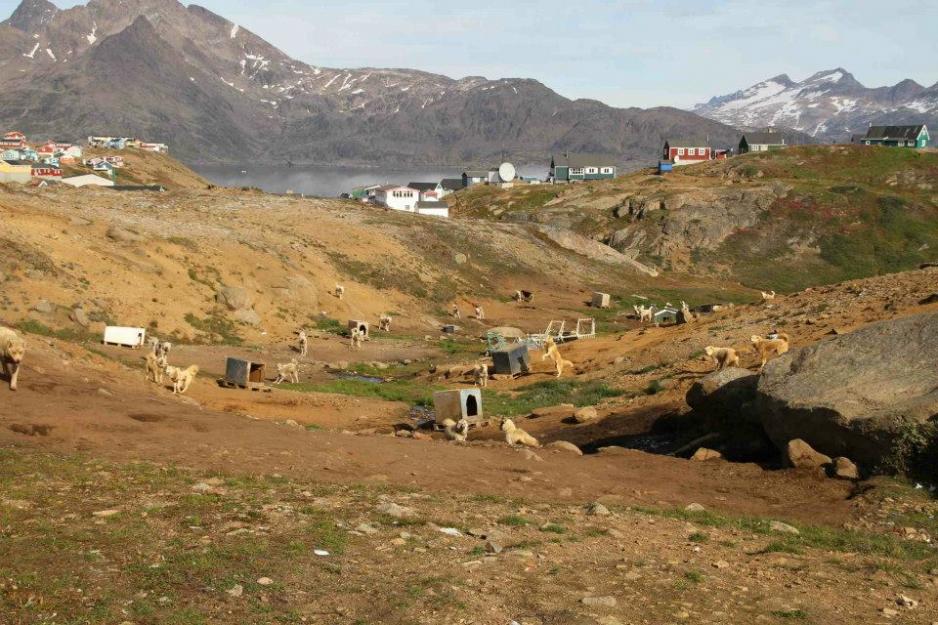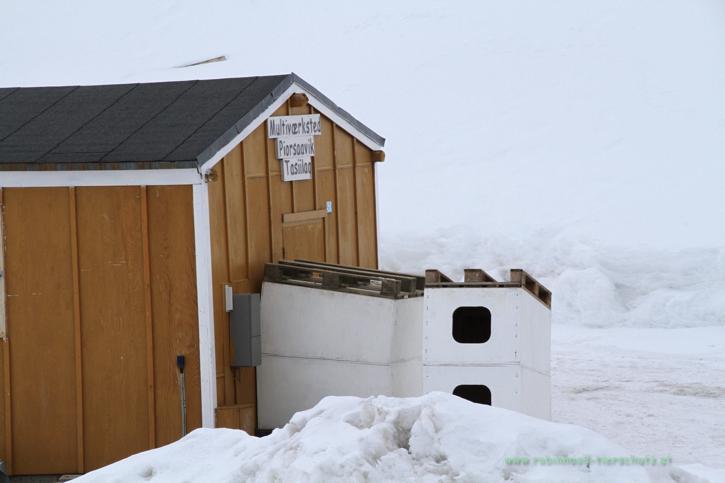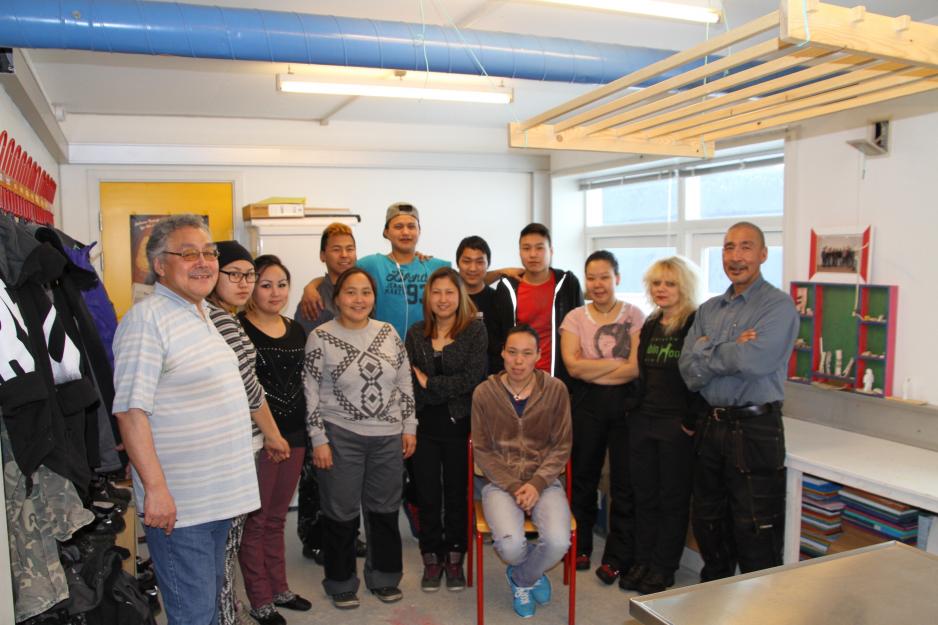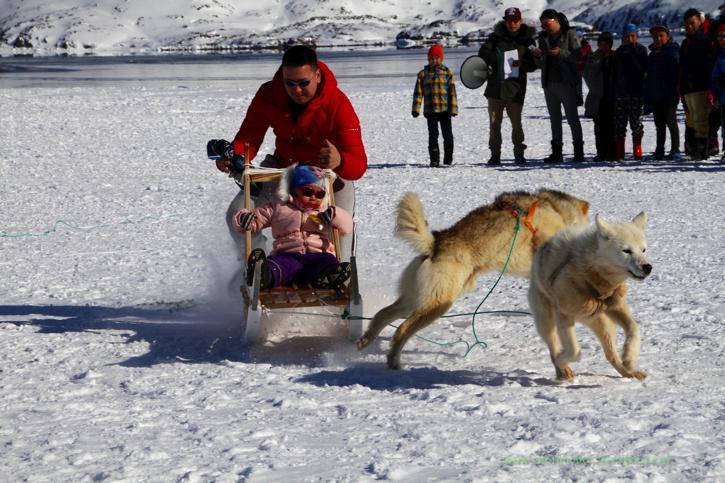Sled dogs in Greenland suffer from sparse infrastructure

A lack of infrastructure and social problems challenge sled dog owners in Greenland. The animal welfare organization Robin Hood wants to improve the living conditions of these dogs and support Greenlandic communities. "It is a long process that is slowly starting to get well", says Marion Loecker, founder of the organization.
Obtaining dog food can be challenging in Greenland due to infrastructure problems and general difficulties in getting basic goods. In addition to being expensive, it is regularly lacking in the stores of remote communities during the winter months.
Often, a regular access to water is also missing, which is a problem year-round. To the contrary of what some dog owners believe, "the dogs require water even during the winter, because they cannot eat as much snow as their organism needs", explains Marion Loecker. Robin Hood tries to remedy those issues by subsidizing freight costs for the food and building water pipelines.

Social problems affect dogs
Marion Loecker suspects that social problems such as alcoholism and the lack of perspectives, but also environmental issues such as climate change play an important part in how sled dogs are treated in Greenland.
Social project to build dog shelters
Robin Hood is also working on providing affordable shelters for the sled dogs. The building materials for the shelters are – similar to dog food - expensive and sometimes hard to get. While shelters are legally required for puppies, the regulations are rarely implemented. According to the director of the veterinary authority, the shelters are not necessary. To make the point just how important shelter is, especially in spring when the dogs stand in melt water, Robin Hood is gathering statement from various international sled dog experts.
Combining animal welfare with an effort to support local people, a social project employs unemployed young people to construct shelters for the dogs from materials imported from Denmark.

Healthy dogs good for tourism
"Sled dog races are becoming very modern, especially among young people. This is an opportunity for the dogs, because only those who have regular access to water, food and shelter are fast", says Marion Loecker.Healthier dogs also provide more opportunities when it comes to sled tours for tourists, as they go down better with visitors. Keeping their sled dogs healthy can thus be beneficial for the dog owners.

Strict sled dog regulations
In August, KNR reported about a three-year old girl that approached a chained dog and was bitten. Regular incidents of children attacked by sled dogs, which are considered as semi-wild and dangerous, have led to strict regulations, including chain keeping. When sled dogs get loose from their chains and stray around, which happens often, they are usually shot.
Castration project in Siberia
In Omsk, southwestern Siberia, another project of Robin Hood in cooperation with the local animal welfare organization ‘Budka-Omsk’ centers around the castration of dogs and cats to reduce the number of puppies and kittens that end up as strays. Starting in February last year, owners of dogs and cats can have their pets castrated by professional veterinarians, an offer which is taken up my many. Food for thought: 75 percent of strays are former pets!
You can find out more about the projects on Robin Hood’s website.
